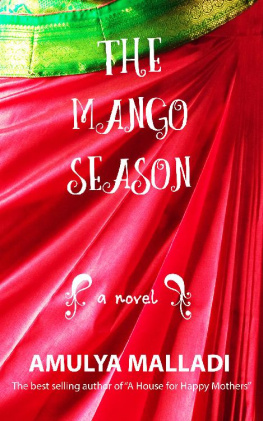ONE
ENTRY FROM ANNA'S DIARY
A Year of Keeping Bees
15 MARCH 1980
When we first decided to become hobby beekeepers, it was because our friend Ole had been doing it for a very long time and seemed to find a lot of solace in the rituals and responsibility. But I had some doubts.
The wings of honeybees stroke about 11,400 times per minutehence the distinctive buzz. I wondered about the buzzing of the bees. I was sure that constant hum would drive me crazy. But now, after a few seasons, the buzz of the bees is like a soothing rhythm, almost like a song, the song of spring.
Skive, DenmarkJanuary 2002
Bzzzzzz, that was how she thought it sounded.
Bzzzzzz, like the buzzing of a thousand bees.
The same sound she used to hear when she visited her uncle Chacha Bashir in Baharak. He had been one of the wealthiest men in town with his silk and bee farm. Silk and honey, he would say, The riches of the kings are mine. Then the Taliban killed him and no one knew what happened to his family.
That was how the Danish language sounded to Raihana, like the buzzing of Chacha Bashir's bees.
The Danes mumbled, she thought as she watched them in supermarkets, on television, and on the streets. She had never seen so many white people before, and this was the first time she was seeing white people at such close proximity. So she stared at them, she just couldn't help it.
They were different from what she had imagined. They were not all tall and fair and beautiful, some of them were short and ugly. And they mumbled when they spoke. The standing joke, Layla had told her, was that they spoke like they had hot potatoes in their mouths and Raihana agreed.
She had escaped a second brutally cold winter at the Jalozai refugee camp in North Western Pakistan when the Danish government offered her asylum. It was difficult for a single woman with no family, no husband, and no education to survive. Her choices had been limited. She could either die in a refugee camp where the cold wind from the mountains pierced its frozen fingers through the tents to all but peel the skin off the bones, or she could go to this country where her distant cousin and his wife had agreed to give her a home.
A part of her didn't want to leave the camp. She had to wait, she thought, wait for Aamir, or maybe go back and look for him? But even she wasn't foolish enough to go back to Kabul. Everyone knew that Osama bin Laden was responsible for the plane attacks in America and everyone knew that the Taliban were the same species as al-Qaeda. America would attack; that's what powerful countries did. The Taliban would fight back, they said, and though the Afghans in Denmark, like many others, didn't like the idea of American troops on Afghan soil, it was better than the Taliban. Some thought the Taliban had been unjustly rousted out of power, that they were the good guys.
So Raihana joined the small number of refugees living in Denmark, all of whom watched the news with desperation, wondering when they could go back. Afghanistan, they knew, would be a war ruin for several decades to come, but there was still hope. They wished that, somehow, Afghanistan would no longer be synonymous with tortured men and women living in penury. Maybe things would change and Afghanistan would become a safe haven, a progressive country, a normal country.
Have to go home someday, can't live here all our life can we? Kabir would say almost every day. Don't unpack everything, Raihana, we'll go back soon.
Go back to what? Layla would ask her husband, her hands on her hips as her son, Shahrukh, pulled at her salwar.
Mor, slik, he said, pleading with his mother to give him candy, which she had strict rules about not giving to him.
Look at him, hai, Shahrukh, it is not Mor, it is Ammi, say Ammi, Kabir said as he always did, but Shahrukh never took him seriously. Mor is some Danish woman, not Layla, she is Ammi. Now say Ammi.
Leave him alone, he's just two, Layla said. And he's calling me mother, not some evil name. All his friends call their mothers Mor, so he calls me Mor.
Raihana watched the young couple battle about going back, about staying. She had been scared when the people from the Danish immigration told her that Kabir wanted her to live with him. She remembered Kabir from her childhood, a long time ago. He was her mother's sister's husband's brother's son. The families had not been close, only meeting at weddings and celebrations. Kabir's family had lived in Kabul while hers settled in a village outside Kabul. But he was the only one who had offered her a chance to leave the refugee camp and she had taken it. She hadn't had much of a choice. The rumor was that Aamir had died in a Taliban prison, but a part of her never believed it. However, she knew she had to leave Pakistan because whether she liked it or not, there was a good chance the rumor about Aamir was true.
But she wished wished until she went mad with itthat he was alive. She wished they had been able to leave together. She wished she wasn't alone and cold because even though Kabul had been hell, she'd had someone to share it with, someone to keep her warm. But in the refugee camp in Pakistan, there was emptiness, insecurity, threats from other men, and fear.
It had been a stroke of luck that when she rattled out the names of relatives and where she thought they lived, she had named Kabir. The others had not panned out, maybe they couldn't be found or maybe they hadn't wanted her, she didn't know. What she did know was that Kabir and Layla had welcomed her with open arms and that was a debt she would never be able to repay.
As she sat at the dining table chopping carrots for the Kabuli pilau she was making for dinner, Raihana was grateful for the turn her life had taken after she'd moved to Denmark. When she'd first come to Skive nine months before, she had been worried that Kabir would be a religious type. She didn't intend to wear a hi jab or an abaya, not after having left Afghanistan and the rules of the Taliban so far behind.
Kabir hadn't asked her to wear a hi jab and neither had Layla, who never went out without donning one herself, in addition to an abaya. Kabir, who drank merrily on Friday nights to celebrate the weekend, didn't ask his wife to get rid of her hi jab and she didn't ask him to stop drinking.
Islam says smoking and drinking is wrong, Layla told Raihana on one of the Friday nights when Kabir was out of the house. What do you think?
Raihana didn't know what to say about things like this. She believed that people should do what they wanted but knew that was not what Layla wanted to hear.
I think it is wrong, Layla said before Raihana could answer. It wasn't like Raihana was talkative, and she didn't always respond to people. Layla had met women like her, men too, people who had scars so big hidden under their skin that they were really one big wound. She didn't know the details about Raihana's life in Afghanistan, but no one knew the details. Raihana wasn't talking and her past was not well known.
When Raihana had first arrived, Khala Soofia, who lived next door, had tried to get Raihana to talk about her past, about her life in Kabul, the dead husband, but Raihana didn't say anything. Khala Soofia had come to Denmark in the early 1990s. Her husband had been a doctor in Jalalabad. Her son had died of cancer, and her daughter had moved to America with her husband, also a doctor, and their children. Soofia talked about moving there all the time.








